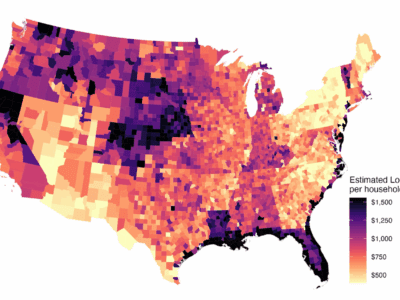Bad climate news round-up
Sometimes it’s hard to be an optimist. The recent climate news all seems ominous:

Sciencereports (subscription required) on the latest paper in press from a satellite-based study of the mass of ice sheets in Greenland and Antarctica. Isabella Velicogna of NASA’s Jet Propulsion Laboratory finds that both ice sheets shrank at accelerating rates over the past seven years. Others warn against making too much of the new data, which represent a brief snapshot in time. If the observed trend is more than a short-term blip, though, it suggests a frightening 5% annual rate of acceleration for sea level rise . (Aside: if you haven’t checked out NASA’s global climate change web site yet, you should.)
- Another paper forthcoming in Science and available now online to those with a subscription concludes that atmospheric CO2 levels are at their highest level in nearly 15 million years, and that the last time there was this much CO2 in earth’s atmosphere, “temperatures were ~3 to 6°C warmer and sealevel 25 to 40 meters higher than present.” UCLA professor Aradhna Tripati is the lead author; UCLA’s press release is here.
- A United Nations Environment Program review of recent scientific literature (press release here; full report here but temporarily unavailable) concludes that “the pace and scale of climate change may now be outstripping even the most sobering predictions of the last report of the Intergovernmental Panel of Climate Change (IPCC).” Evidence accumulated since the 2007 IPCC report suggests that the world is getting hotter than predicted, and that the pace of change is faster than expected. Britain’s Met Office agrees. It is predicting that global average temperatures could warm up to 4°C by 2060 under a “business as usual” emissions scenario, with some areas seeing temparture increases of 10°C.







Reader Comments